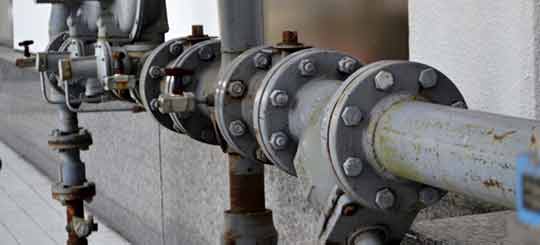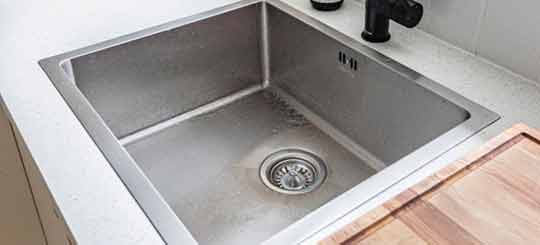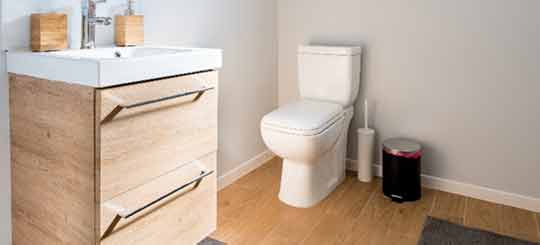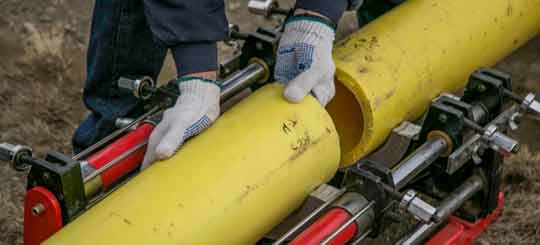
For most homeowners, plumbing intricacies often fall into the category of ‘out of sight, out of mind.’ It’s a network of pipes and drains that hum along quietly, carrying out crucial functions unseen and typically unnoticed. That is, until an issue arises, bringing the hidden system to the forefront. Main sewer line clogging is one such issue – a common yet highly disruptive plumbing problem. Unraveling this often mystifying and messy issue requires diving into its science, transforming complex plumbing jargon into digestible facts. Of course, that’s only half the battle; you must also know how to handle this issue properly.
What is a Main Sewer Line?
The main sewer line, often hidden underground, is the lifeblood of a home’s plumbing system. Serving as the primary channel, it funnels wastewater from your household to the city sewer or a septic tank in some cases. Whether water from your morning shower or waste flushed down the toilet, it all ends up in the main sewer line. Thus, this line essentially acts as the crucial bridge between your home’s internal plumbing and the municipal sewage system. When this key component fails due to a clog, it can disrupt the entire system. This can lead to inconvenient and potentially unsanitary issues.
The Basics of Clogging
When it comes to plumbing, clogs are a pervasive issue, often causing immense frustration to homeowners. But what exactly leads to these troublesome blockages? Essentially, clogs occur when various substances accumulate and solidify within the pipes, creating obstructions that block the flow of water. These substances can range from food scraps in your kitchen sink to hair strands in your bathroom drain. But it’s not just these minor areas; significant sections of your plumbing system, such as the main sewer line, can also fall prey to these nuisances. Each area is susceptible to different types of clogs, impacting the functionality of your plumbing system. Of course, seeing as your plumbing system is interconnected, a clog in one place can easily disrupt and even promote clogs in other parts of the system.

It’s common for clogs to start in a poorly maintained fixture like a sink and progress to the main sewer line.
The Science Behind Main Sewer Line Clogging
Sewer line clogging is a complex issue rooted in physical and chemical reactions. Consider the wastewater that’s channeled through your sewer line. It contains various substances, such as fats and oils, that can stick to the inner surfaces of your pipes. Over time, these substances coalesce and harden, significantly reducing the pipe’s internal diameter and restricting the water flow. This process of accumulation and solidification is the essence of clogging. Furthermore, environmental factors like temperature and pressure play a role too. For instance, colder temperatures can cause fats to solidify faster, hastening the process.
How to Identify a Main Sewer Line Clog
The ability to recognize a main sewer line clog can save homeowners considerable hassle and expense. The signs, though subtle initially, can quickly escalate if ignored. They range from slow drains throughout the house to recurring sewage backups in multiple locations. Foul odors wafting from your drains or toilets are another warning signal, hinting at a blockage further down the line. A professional diagnosis is always recommended to confirm a clog. They employ specialized tools and techniques to identify the issue’s location and severity accurately. Remember, acting promptly at the first signs can prevent a minor clog from becoming a major problem.
Common Causes of Sewer Line Clogging
Main sewer line clogging can be triggered by various causes, each contributing to the obstruction in a unique way. Flushing inappropriate items down the toilet is one such common cause. Baby wipes, feminine hygiene products, and even excess amounts of toilet paper can easily create blockages. Another significant cause is tree root intrusion. Particularly during summer storms, roots can infiltrate sewer lines attracted by the water source. This can lead to serious clogs and damage. Lastly, don’t overlook the potential effects of pipe aging and breaks. Old, corroded pipes or those damaged by ground movement can collapse, causing severe clogs in the main sewer line.

Main sewer line clogging can occur due to various things.
Handling a Main Sewer Line Clog
Your Homeowner’s Insurance and Sewer Repairs
Repairing main sewer line clogs can often lead to substantial costs, adding financial strain to the already stressful experience. Hence, it’s wise to check whether your homeowner’s insurance covers sewer repairs. While some policies may include this, it’s often not a standard feature and can require additional coverage. Understand the details of your policy, or consult with your insurance agent to know exactly what’s covered. Having this knowledge beforehand can help you better navigate the repair process. In the best-case scenario, your policy can significantly mitigate the expenses of repairing or replacing a broken sewer line.
Professional Removal of Main Sewer Line Clogs
Professional plumbers have an arsenal of methods at their disposal to safely and effectively tackle main sewer line clogs. A professional hydro jetting service, for instance, uses high-pressure water to break apart and clear blockages. On the other hand, rodding involves a flexible, rod-like tool that physically dislodges the clog. When performed by experienced professionals, these techniques ensure the clog is not just partially but fully removed, preventing a quick recurrence. As tempting as it may be to attempt DIY methods, clogs in the main sewer line can be complex and best left to the professionals. Their expertise ensures a thorough and safe resolution of the issue.

Hiring professional help is the best way to ensure that a main sewer line clog is handled safely.
Keep in mind that fixing the main sewer line may require digging into the foundation of your home if some kind of damage is located right underneath it. In this case, you might have to move out of the home for a few days while repairs are done. Experts from Best Movers NYC also recommend finding a separate space, such as a short-term storage unit, to keep your possessions safe from damage in case something goes wrong during the repair job.
Protecting Your Home
In some homes, simple reliance on gravity isn’t enough to ensure efficient wastewater flow, especially if you have bathrooms or laundry facilities located below the level of the main sewer line. In these cases, a sewage ejector pump becomes essential to your plumbing system. This pump effectively propels wastewater upwards, aiding its movement toward the main sewer line, thus preventing potential backflows and clogs. By ensuring a smooth, unobstructed flow, a sewage ejector pump can protect your home from potentially messy and costly plumbing issues.
Prevention of Main Sewer Line Clogging
Prevention is an important strategy in maintaining a healthy and clog-free sewer system. Regular inspections by a professional plumber can detect early signs of clogging or potential issues. Adopting mindful flushing habits, like avoiding non-flushable items, can prevent unnecessary clogs. Similarly, proactive tree root management can keep those thirsty roots away from your sewer lines. Routine maintenance, including cleaning and servicing key plumbing components, can also help extend the lifespan of your pipes. Implementing these preventive measures can significantly reduce the risk of unexpected issues like main sewer line clogs, keeping your home’s plumbing system running smoothly.
To Wrap Up
Gaining a deeper understanding of the science behind main sewer line clogging can be a powerful tool for homeowners. It’s not just about dealing with the issue but about knowing how to prevent it, identify it, and address it effectively. This knowledge can empower you to maintain a healthy plumbing system and avoid unexpected and costly disruptions. But it’s equally crucial to remember that professional expertise is invaluable when dealing with these complex issues.